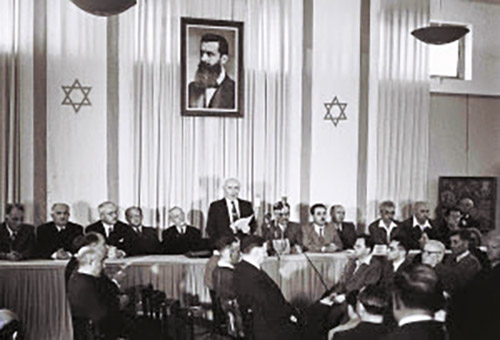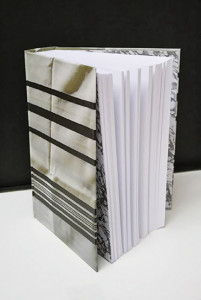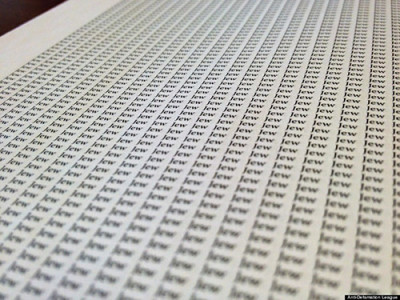
There I was, in Washington, DC this past Wednesday once again, parading through Congressional office buildings and stating the case for a strong U.S.-Israel relationship. Though this was my umpteenth NORPAC mission, the thrill of engaging in this civic discourse never ceases to electrify me. I am forever grateful to live in a country where as a citizen I have the right and the ability to enter the halls of power and share my point of view with elected officials. This is democracy in action, and we dare not take this privilege for granted in light of increasingly authoritarian governments coalescing across the globe. I always emerge from NORPAC with heightened hakaras hatov for the United States of America and the system devised with wisdom and prescience by our Founding Fathers. And I am always eager to seek out the personal, get to know the men and women who make our laws and represent the colorful puzzle pieces that comprise our diverse nation. You can learn a lot about someone just from examining the artwork and artifacts decorating their office.
And so, my prying side couldn’t help but notice the large book prominently positioned atop the coffee table in Congressman Max Miller’s office. Miller, Republican of Ohio’s 7th District, represents a slice of the state directly south of Cleveland (that’s prime solar eclipse territory, for those of you keeping score at home). He is one of the few Jewish Republicans in the House of Representatives, and the book which caught my eye looked like it was wrapped in a tallis and was 1250 pages long. Entitled «And Every Single One Was Someone,» this startling tome simply contains the word «Jew» in small print six million times, page after heart-breaking page. «And Every Single One Was Someone» provides a tangible method of coming to grips with that senseless and numbing number of six million. That is a figure we hear often but cannot truly fathom.
The Shoah was among the greatest catastrophes our people has faced. We look back at the events of 1939-1945 and shudder in horror, but we have not been paralyzed by it. We have learned how to remember, to honor, to internalize the lessons of hatred and inhumanity, but also how to build and grow and promote resilience. We have not wallowed in victimhood. The catastrophe does not define who we are as a people. Our tenacity, the unwavering desire to be a force of good in the world, has in fact only intensified after losing six million.

A great deal of this sentiment is the product of the creation of Israel in 1948. The political recognition of a Jewish homeland when we had been so alone and unwanted provided a fresh start, an historical correction and a balm for our wounds. We were able to hold our heads high whereas beforehand we felt as downtrodden as Yeshayahu (51:23) described:
וְשַׂמְתִּ֙יהָ֙ בְּיַד־מוֹגַ֔יִךְ אֲשֶׁר־אָמְר֥וּ לְנַפְשֵׁ֖ךְ שְׁחִ֣י וְנַעֲבֹ֑רָה
וַתָּשִׂ֤ימִי כָאָ֙רֶץ֙ גֵּוֵ֔ךְ וְכַח֖וּץ לַעֹבְרִֽים׃
I will put it in the hands of your tormentors,

Who have commanded you,
“Get down, that we may walk over you”—
So that you made your back like the ground,
Like a street for passersby.
But just a few years later, the situation changed to that depicted in last week’s Parshas Bechukosai:
אֲנִ֞י ה’ אֱלֹֽקיכֶ֗ם אֲשֶׁ֨ר הוֹצֵ֤אתִי אֶתְכֶם֙ מֵאֶ֣רֶץ מִצְרַ֔יִם מִֽהְיֹ֥ת לָהֶ֖ם עֲבָדִ֑ים
וָאֶשְׁבֹּר֙ מֹטֹ֣ת עֻלְּכֶ֔ם וָאוֹלֵ֥ךְ אֶתְכֶ֖ם קֽוֹמְמִיּֽוּת׃
I am your God who brought you out from the land of the Egyptians to be their slaves no more, who broke the bars of your yoke and made you walk erect.
As Rashi explains:
קוממיות. בְּקוֹמָה זְקוּפָה
קוממיות means erect in stature (in contrast to the bent position of a person who is under a yoke) (Sifra).
That beautiful word, קוממיות, which appears only once in the Torah, represents our attitude of pride and confidence. Onkelos reads it as לְחֵרוּתָא, “with a sense of freedom.” A nation of קוממיות steers its own ship, takes responsibility for its own actions and destiny. Ben Gurion in fact dubbed the War of Independence מִלְחֶמֶת הַקּוֹמְמִיּוּת, the War of Komemiyut. Whereas the term עַצְמָאוּת independence, has more modern origins, the word komemiyut is right out of the Torah and provides a more authentic expression of the spirit felt at the time. Like the dry bones of Yechezkel’s vision, the skeletons of the Shoah were able to walk tall once again; they had recaptured komemiyut. In fact, we felt twice as tall. The Malbim explains that the word comes from קומה, story of a building, and therefore קוממיות means two stories tall. Amazingly, according to Rabbeinu Bachaye, קוממיות will be taller than we have ever stood:
ואולך אתכם קוממיות. כבר הזכרתי למעלה כי פרשה זו עם הבטחותיה הנפלאות לא נתקיימה לעולם בשני המקדשים אך תתקיים לעתיד
“I have already mentioned previously that the promises made in this paragraph have never been fulfilled during the period when the two Temples were standing. They will, however, be fulfilled in the future.”
From a broader perspective, our nation began moving past the catastrophe from the moment of liberation, marrying and having children in D.P. camps, smuggling arms and refugees into Mandatory Palestine, and marching through the halls of power in Europe, the U.S. and at the U.N. to make the case for a Jewish state. The numbers seared into our arms haunted us and emboldened us, but did not characterize us as eternal inmates. The catastrophe was conceived and produced by the Nazis and their many collaborators; they, not we, were to be forever linked to catastrophe.
I dwell on this point, of course, because while we were in Washington on Wednesday, the machinations of Israel’s friends and foes became readily apparent. Representative Rashida Tlaib had planned a «Nakba Day» gathering in the U.S. Capitol, referring to Israel’s establishment as a catastrophe. This is a movement that has unfortunately gained steam in recent years, a political Tisha B’Av of sorts for the Palestinian cause. Speaker of the House Kevin McCarthy had blocked Tlaib from holding the event at the Capitol Visitor Center, and as we sat in Max Miller of Ohio’s office surrounding the Congressman’s copy of «And Every Single One Was Someone,» his aide described the substitute pro-Israel event that would be taking place instead, heavily organized by Miller’s staff. Little did we know at that moment that Senator Bernie Sanders had salvaged Tlaib’s rally by granting permission for use of the Senate Health, Education, Labor and Pensions Committee hearing room, which he chairs and where McCarthy does not have the authority to block an event.
And so, in a congressional hearing room on the day when 500 rockets aimed at innocent civilians fell on Israel, Tlaib shouted, “No child should ever have to worry what will fall from the sky.” As thousands huddled in bomb shelters across the region, Tlaib accused the Israeli police of a “sustained campaign of terror,” and claimed once again that Israel is an “apartheid state” and that U.S. aid supports ethnic cleansing. And most tellingly, Tlaib stated, “We have a right to tell our stories of the Nakba of 1948 because the Nakba never ended.” The catastrophe continues every second that a Jewish State exists.
This heinous outlook is the product of willful omission of historical context and it produces a catastrophic result for the Palestinian people.
Any student of history can tell you that in 1948 the Palestinians lost land that had been partitioned when five Arab armies attacked the fledgling State of Israel, with support from Palestinian leadership. The culture of victimhood and oppression was born within a few days of Israel’s birth and exercising of its natural right to self-defense. Nakba Day is an evasion of responsibility that places all the Palestinians’ problems upon Israel’s shoulders and none on its own failed and corrupt leadership. Israel is far from infallible in its 75 years of grappling with this issue, but the failure to acknowledge their own role in the catastrophe dooms the Palestinians to eternal martyrdom.
Furthermore, by perversely deeming catastrophe a persistent condition established by the enemies of the Palestinians, Tlaib and others intentionally discount the Palestinians’ ability to do anything productive to ameliorate their own miserable situation. Even if one were to believe that the catastrophe is the fault of Israel alone, for how long can one wallow in despair? Who—aside from the leadership—benefits from the paralysis of neverending catastrophe?; of bashing the perceived tormentor instead of allocating resources for societal development?; of glorifying murder instead of learning to walk erect?
The great coffee table of the Jewish people is sadly piled with many volumes of “And Every Single One Was Someone.” We have weathered more catastrophes than we can bear, and yet we have never stopped hoping and never stopped building.
We define ourselves by our own actions, our own moral rectitude. And when we fail, which we have certainly done while managing relations with the Palestinians, we acknowledge it and learn from our mistakes. We do not get trapped in errors of the past because even when we’re down we understand that the freedom of the soul is expressed by walking בְּקוֹמָה זְקוּפָה, tall and proud.
And so, right before we recite Krias Shema each morning, we invoke a special prayer for the future of the world:
וַהֲבִיאֵֽנוּ לְשָׁלוֹם מֵאַרְבַּע כַּנְפוֹת הָאָֽרֶץ וְתוֹלִיכֵֽנוּ קוֹמְ֒מִיּוּת לְאַרְצֵֽנוּ
And bring us to peace from the four corners of the earth and lead us upright to our land.
And after eating bread, we plead for this in Birkas Hamazon:
הָרַחֲמָן הוּא יִשְׁבּוֹר עֻלֵּנוּ מֵעַל צַּוָּארֵנוּ, וְהוּא יוֹלִיכֵנוּ קוֹמְמִיוּת לְאַרְצֵנוּ
May the Merciful One break the shackles of our burden from off our necks and lead us upright to our land.
The apogee of the human spirit, and the reclamation of the world, can indeed be found in the words, “I Am Someone.”
Rabbi Steven Miodownik has been teaching middle school Judaic Studies at RPRY since 2000. He received his semicha from Yeshiva University after graduating from the Sy Syms School of Business with a degree in marketing. He also earned a master’s in Secondary Education from the Azrieli Graduate School. Rabbi Miodownik is the rabbi of Congregation Ahavas Achim in Highland Park.













